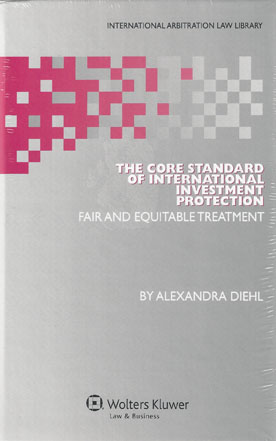
This book surveys and analyses the nature of FET as a “new” rule of customary law that is non-contingent and absolute in that it protects a given entity irrespective of the treatment which may be accorded to others. The author explores whether the often-heard criticism of the international investment protection regime is justified.
The overarching questions are: Does the system`s mixture of private arbitration and public law indeed undermine accountability and independence in judicial decision-making? Does it trump principles of legislative supremacy and, in the end, alter a central tenet of representative democracy? Among the far-reaching aspects of the subject covered are the following:-
By analysing how states are bound by investment treaty obligations and how arbitrators deal with them, this book explains how the standards are continually shaped and scrutinized to respond to the needs of the actors engaged in an investment relationship. Although it is of great interest for legal academics and jurists, it is its practical analysis that will be most welcomed by arbitrators, corporate counsel, and government regulatory officials.